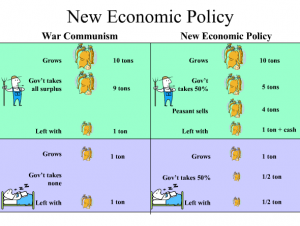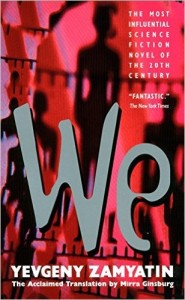Marx, Saint-Simon, and Owen both address the inherent issues of capitalism. In his writing of “Estranged Labour”, Marx suggests that the worker will never be satisfied because of labor’s “alienation.” As workers produce more, the owners and employers take in the product and become wealthier—the workers gain little. Individuals work for survival purposes; they do not partake in labor because of any passion or interest. Because the worker gains nothing except for the ability to survive, the worker becomes alien to not only himself, but society. The worker is merely a “product” of nature ((Karl Marx, Estranged Labour)). Saint-Simon argues that hard work and honesty do not always lead to success. Because of the “struggle to the death,” ((Comte de Saint-Simon, The Incoherence and Disorder of Industry)) only a small number of individuals will succeed and all the rest will fall. This, in turn, leads to some individuals who do not succeed to partake in immoral acts such as lying and stealing in order to gain an advantage and acquire more wealth. While these two authors write about the struggles capitalism creates, Robert Owen suggests in his short chapter that workers should not accept the injustice they face in capitalistic society. Owen argues that workers should unionize and protest their injustices, while at the same time calling for the wealthy and the intelligent to change society because they have the ability to do so. ((Robert Owen, The Legacy of Robert Owen to the Population of the World))
Today (you knew that was coming), the top 1% of society take in the majority of the wealth. As a result, millions of Americans, and citizens abroad, suffer from poverty. While many individuals engage in unionization and protests, their actions do not carry enough weight to change capitalistic society. But their voices have volume. Millions of people around the world, including public officials and administrators, are listening. The unfortunate thing is, though, only the wealthy have the means to actually enact new laws and new ways of life. Yes, I’m going to mentioned Bernie Sanders. Sanders’ idea of democratic socialism appeals to millions of Americans because of its capacity for opportunity and equality. Sanders, Marx, and Saint-Simon all have similar visions of an equally successful society. I thought that Owen’s writing best illuminates the state of our society today. In his invigorating, passionate tone, he called for the wealthy to come together and give everyone a chance. Today, millions of individuals including Sanders are urging the wealthy to change their money grubbing ways in order to create opportunity for all citizens. Overall, the issues of capitalism plague our society, and individuals such as Sanders are doing their best job to do something about it.
Is capitalism the most ideal system, or is it bound to fail?
Are we afraid to change are capitalistic society?
Where are we going? Will things change?


